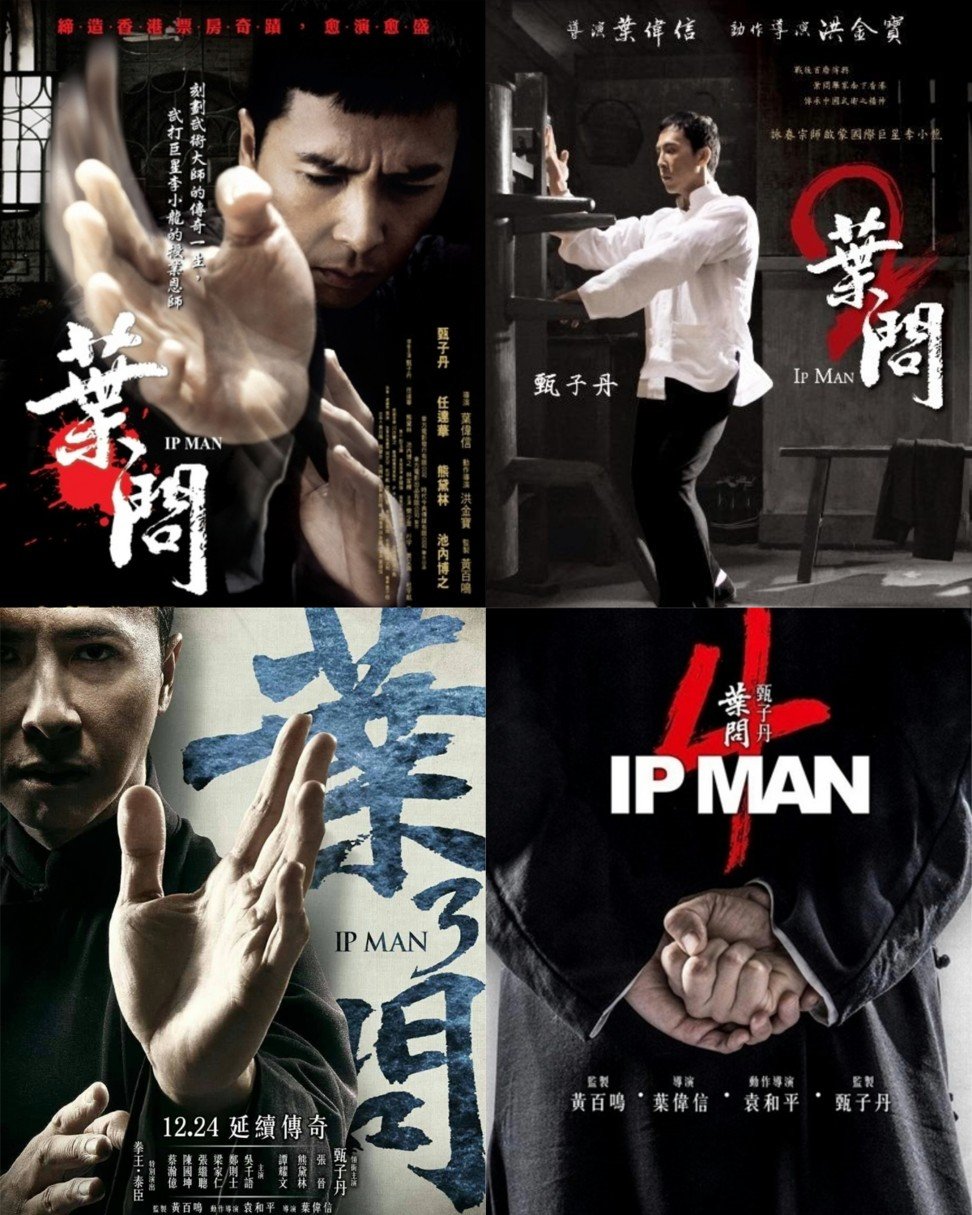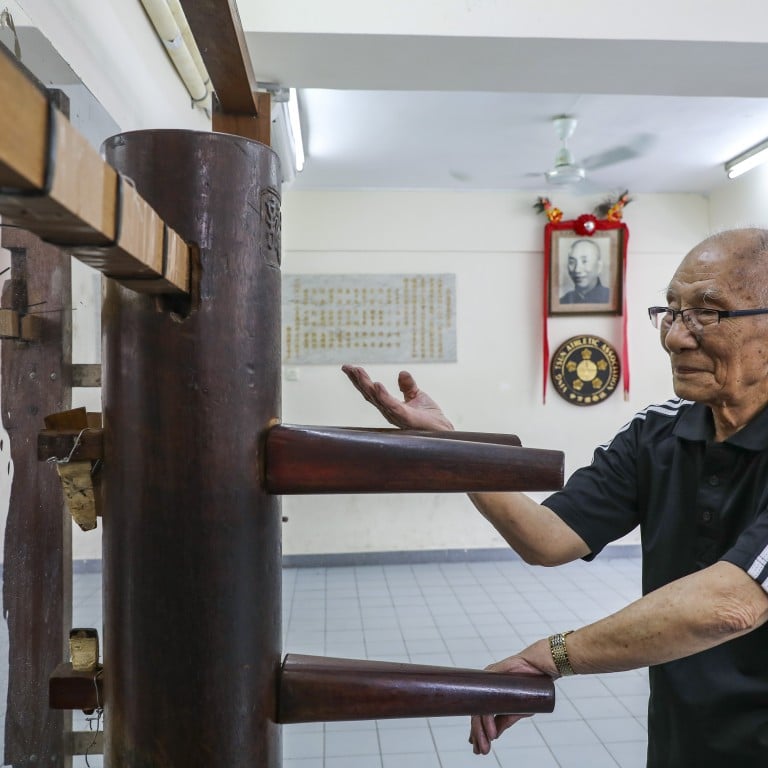
How Ip Chun, son of Hong Kong martial arts titan Ip Man, is carrying on his father’s legacy at the grand age of 95
- Folklore behind late Wing Chun master and teacher of kung fu star Bruce Lee is explored in new 45-minute documentary
- Film’s maker reveals how Lee was turned down when he asked his master to teach him some moves which he had not learned
In a quiet Wing Chun dojo in Hong Kong’s Prince Edward, the dull rhythmic thuds of hands striking wood ring out, first slowly, then gradually increasing in pace. The lightning jabs, from a flurry of angles on the muk yan jong – or wooden dummy – come from Ip Chun, 95, son of the legendary Ip Man.
How Ip Man helped turn a rebellious young Hongkonger into a wing chun master
“The principle of using softness to subdue power is something that you can apply in life. It’s a spirit you can use at work and in other aspects,” Ip says. “I feel that the best students are those from the mainland. They respect their teachers and they are so from the heart.”
The principle of using softness to subdue power is something that you can apply in life
The essence Ip expounds and his father – who is almost synonymous with Wing Chun thanks to a series of biographical films starring Donnie Yen Ji-dan – are captured in the documentary The Legacy of Ving Tsun.
Dr Lee Ka-man from Hong Kong Shue Yan University, who produced the 45-minute film with HK$110,000 (US$14,000) from The Lord Wilson Heritage Trust, reveals more historical nuggets: “When he was young, Ip Chun was not interested in learning Wing Chun from his father. And Ip Man did not force him.”
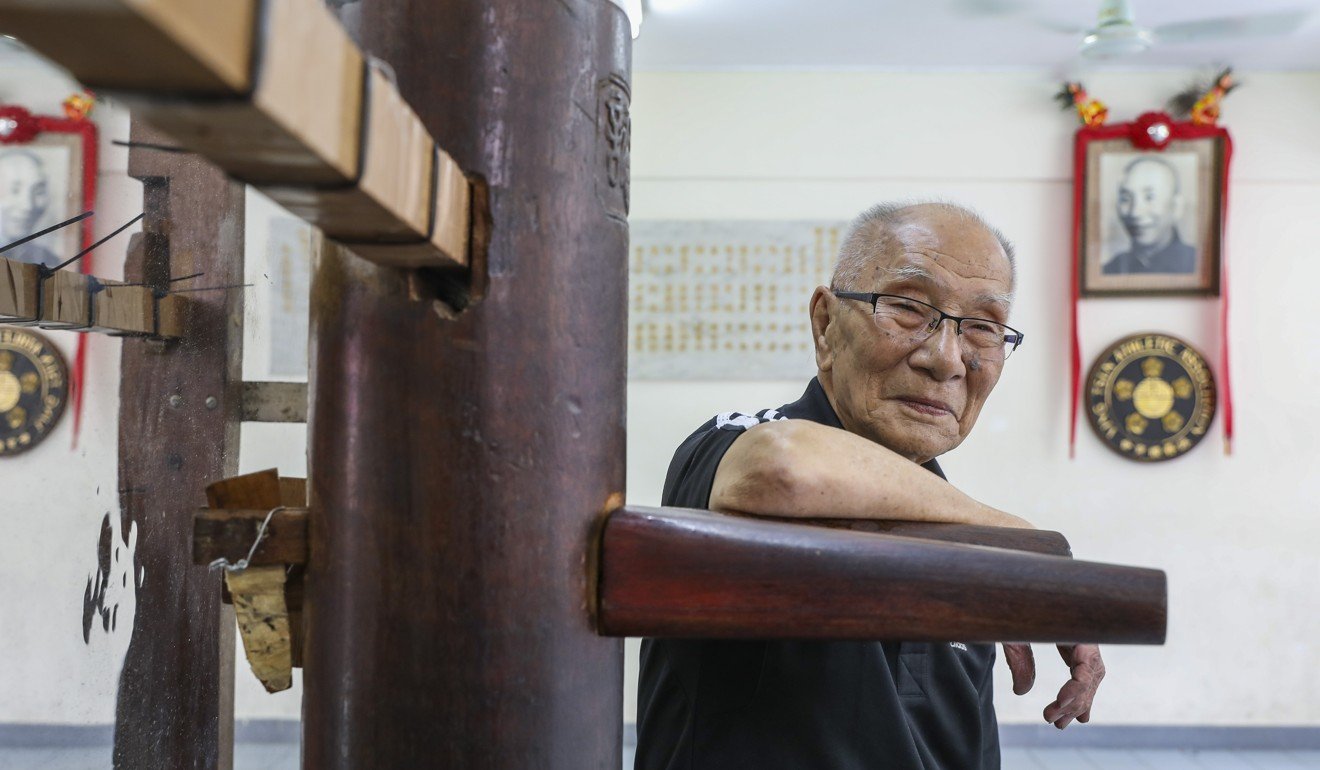
Lee, who is from the university’s journalism and communication department, spent four years on the documentary, based on extensive interviews with Ip Chun after shadowing him during classes in the city and on the mainland. Parts of the film will be shown at the university this Saturday, while full screenings for the public will take place later this year.
Bruce Lee was a fighter, Ip Man taught him to be a gentleman
Lee added of Ip Chun: “He later felt that, as the eldest son of Ip Man, he had the responsibility to learn Wing Chun and pass it down. He also had to learn to later teach it to make a living.”
She offers more insight into the much-hyped relationship between Ip Man and Bruce Lee. The elder Ip moved to Hong Kong from Foshan in 1949 and began teaching Wing Chun the next year. Bruce Lee was just a teen when he came under the tutelage of Ip.
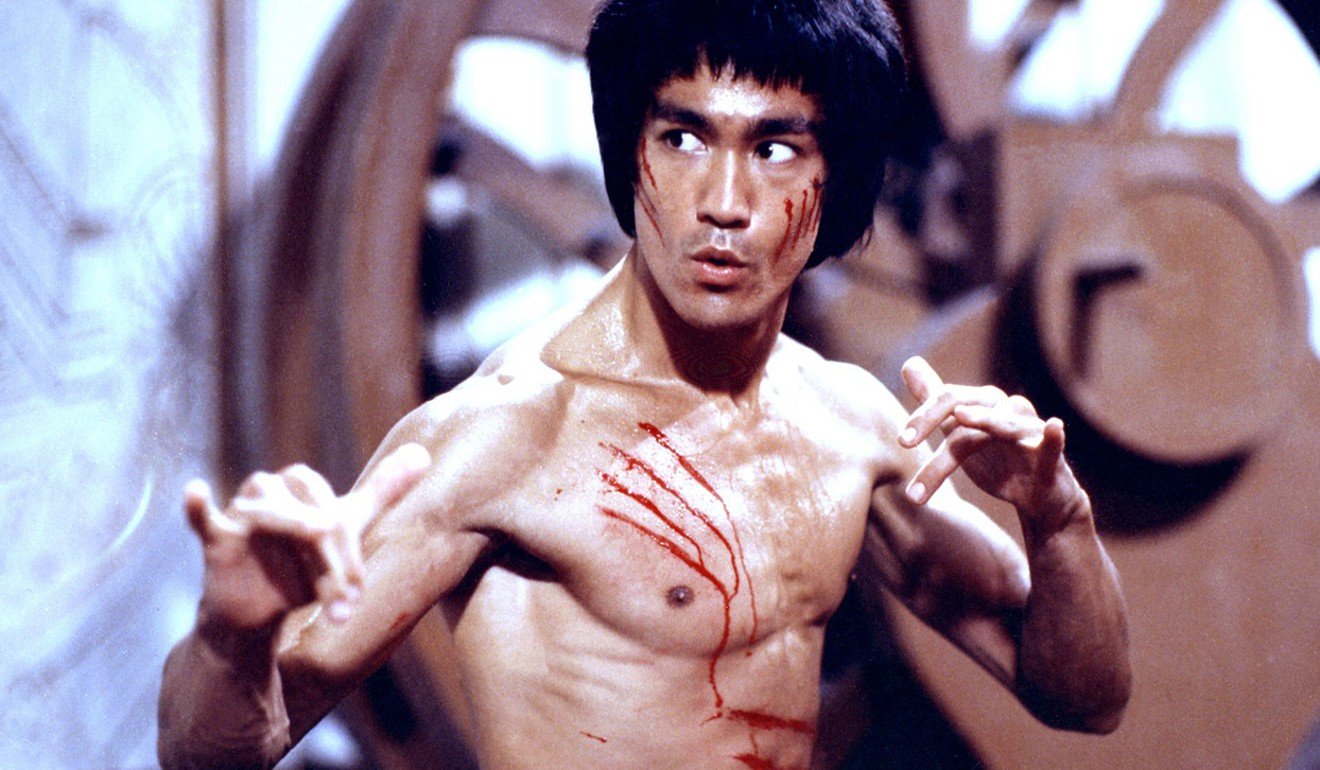
Dr Lee says that while it is widely known that Bruce Lee learned Wing Chun from Ip Man and later developed his own style – Jeet Kune Do – it was actually Wong Shun-leung, another master who was an apprentice of Ip Man, who spent the most time teaching Lee.
When Lee left Hong Kong in 1959 for his birthplace in the US, he had not fully mastered Wing Chun. While in America, Lee wrote many letters to Wong, thanking him for the coaching. One of the letters is displayed at the Hong Kong Heritage Museum in Sha Tin.
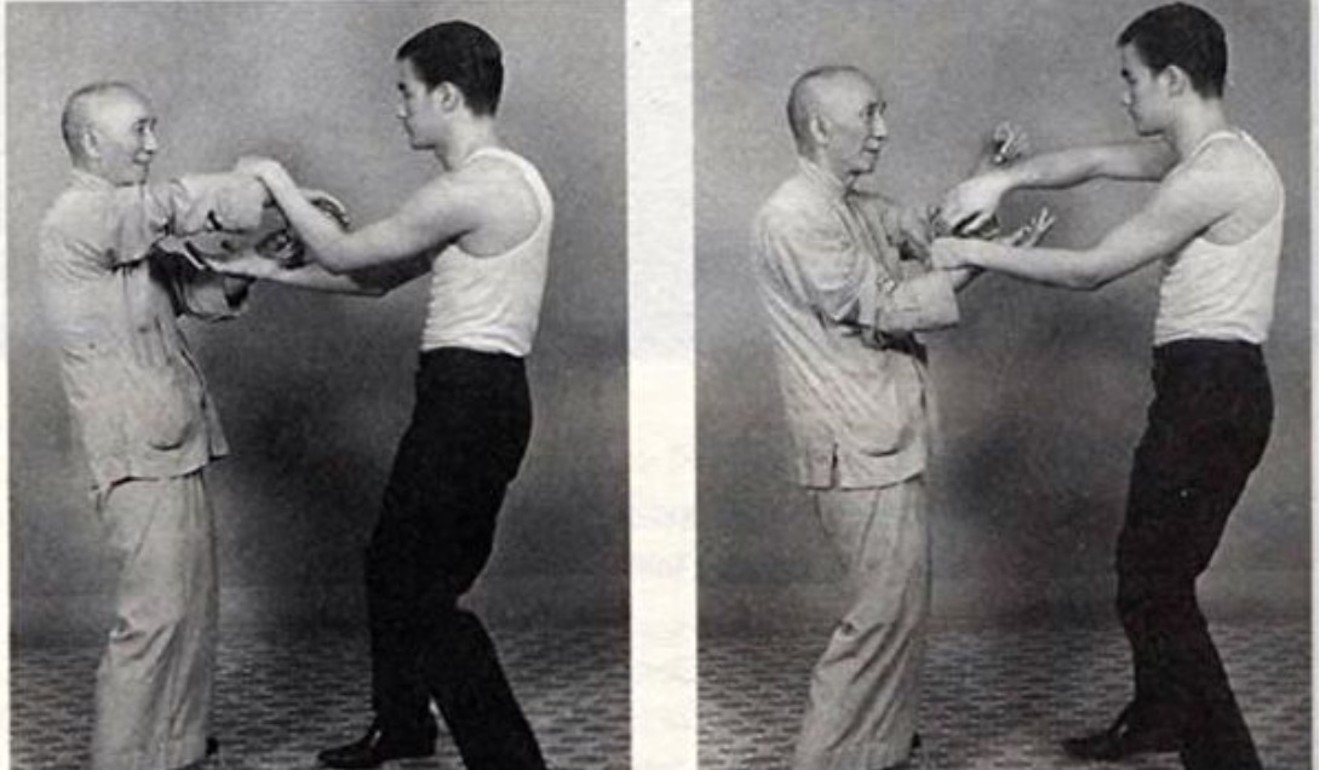
According to Dr Lee, Bruce Lee once offered to buy Ip Man a property if the old master was willing to film some Wing Chun moves for him to learn, and send it to him. But Ip’s reply was a firm “no”.
“Only Ip Man himself knows why [he rejected Lee],” she says. “But you have to understand Ip was also a wealthy person and not someone who would do anything when asked.”
You have to understand Ip Man was also a wealthy person and not someone who would do anything when asked
Some of Ip’s apprentices went on to adopt their own styles of Wing Chun, and among them was the late master Lok Yiu. According to Dr Lee’s documentary, those who practised the Lok Yiu style were also very strict in choosing disciples.
“There were cases when even if you go knocking on doors, they still will not teach you,” Lee says, recalling one master who said he would rather let the art die than pick up apprentices arbitrarily.
Wing Chun has enjoyed a resurgence since 2008’s Ip Man, which spawned a decade-spanning franchise comprising two sequels, a spin-off and Ip Man 4 set to land this year with Donnie Yen reprising the eponymous role.
In 2014, the Hong Kong government announced the city’s first list of intangible cultural heritage, and Wing Chun was among 480 items.
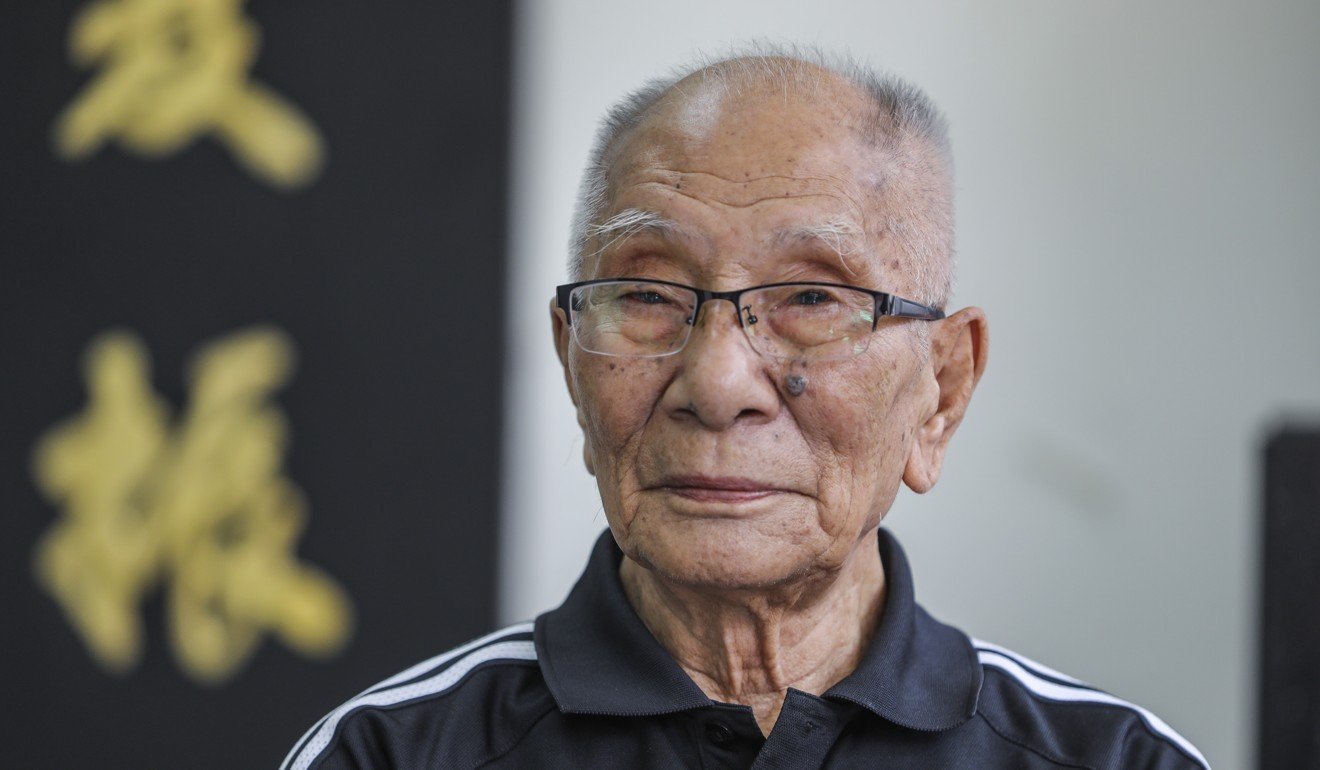
Amid the fanfare however, Wing Chun is simply a way of life for Ip Chun, a man of few words.
“As the bearer of this intangible cultural heritage, I have the responsibility to pass down Wing Chun.
My hope is that its nature will never change, that it will continue to be preserved,” Ip says.


